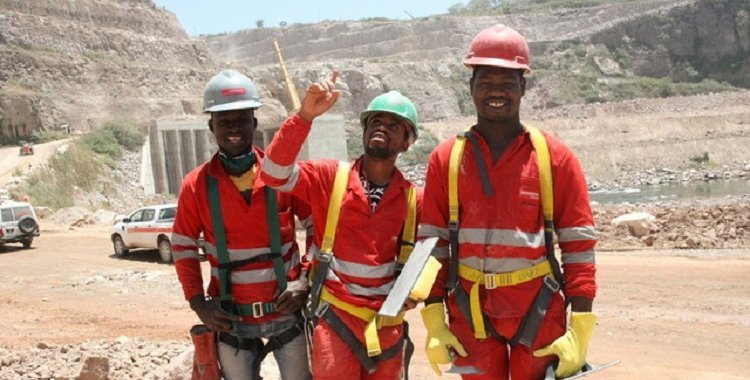"We understand that unemployment is a special case, which should have a differentiated treatment, both statistically and at the level of public policies," Cedesa argues in a report released this Saturday.
"The authorities are called upon to develop a Keynesian-type program to promote employment, possibly with recourse to capital available from the fight against corruption, as we have advocated in other reports."
According to the entity, "the State has to spend money on job creation" because "it is evident that the market or the private economy will not be the ones to solve, in the short term, the problem of the lack of jobs, especially for young people" in Angola.
In terms of statistics, he believes that the country must determine "better who is occupied with informal productive remunerated activities and who cannot effectively obtain any remunerated work, even if they want to".
Because "we must avoid statistical biases that disturb a proper understanding of reality," he says.
Cedesa predicts that this year Angola will emerge from economic recession and have a budget surplus "between 2.3 percent and 2.75 percent, depending on the evolution of oil prices".
"Our model predicts that in the year 2021 the Angolan economy will come out of recession, and GDP growth will reach between 1.4 percent and 1.75 percent," the document states.
Cedesa also "points to a budget surplus of between 2.3 percent and 2.75 percent, depending on oil price trends until the end of the year," and stresses that, "considering the evolution of the exchange rate of the Kwanza [Angolan currency]," its forecast is that in 2022, "the public debt/Gross Domestic Product (GDP) ratio will be below 100 percent, achieving greater consolidation".
Consequently, "the initial period of strong adjustment and contraction of the Angolan economy is expected to come to an end this year," if there are "no more shocks and the covid-19 pandemic is controlled worldwide".
The group of academics also explains that their perspectives take into account several factors, highlighting the main ones, such as the calculation of the price of oil, "always a determining element in the Angolan economy.
Thus, they admit that "the price of Brent crude will maintain a slight tendency to appreciate, placing itself at a level between 65 USD [dollars] and 75 USD per barrel".
"It is also part of our model a relative stabilization or eventual appreciation of the kwanza against the dollar and euro, which allows us to reverse some past falls that were merely nominal due to the flexibilization of the exchange rate," they say.
The group also took into account a "post-covid-19 global recovery" that "will bring encouragement to exports from the Angolan economy, as is already happening with China.
Finally, he anticipates that "gradually the environment for foreign investment will improve, as a result of legislative reforms and the commitment of the political power".
"We have as a recent example the various announcements coming from Turkey. At the end of July 2021, Angola and Turkey signed 10 cooperation agreements, in the areas of economy, trade, mineral resources, and transport, having already announced an increase in the trade balance with Angola of around US$500 million," they point out.
From the point of view of obstacles to recovery, it highlights "the immense lack of capital," an "essential element for any sustained recovery," and also "the lack of diversification of the economy," as well as "the persistence of administrative bureaucracy".







